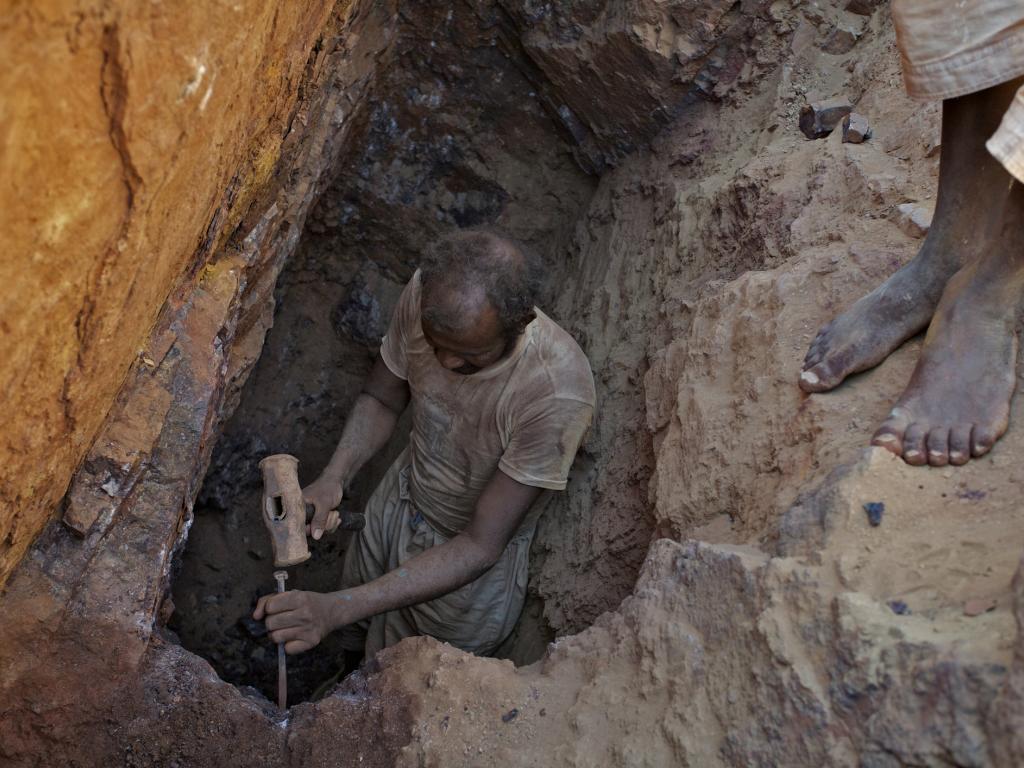The Fight against Galamsey: How Ghana’s ban on small-scale mining has discriminated against legal small-scale mining activities

Whilst many countries, including South Africa, are grappling with the difficulty of regulating and formalizing artisanal and small-scale mining, Ghana is one country that has managed to legalize their small-scale mining sector successfully through various legal frameworks. In fact, the country is so far ahead of other African countries that it has gone full circle, having regulated the sector and now temporarily banning small-scale mining altogether.[1]
In its efforts to achieve sustainable mining with sound environmental practices, the Ghanaian government, through the Ministry of Lands and Natural Resources, imposed a nationwide six-month ban on all small-scale mining activities as of March 2017. However, the ban has been extended twice since the initial six-month banning period. An initial extension of three months has transformed into an indefinite extension of the ban, only to be lifted after the auditing process is completed and approval by the cabinet had been given.
The temporary ban has impacted legal small-scale mining operations, negatively. Prior to the implementation of the ban, small-scale miners in Ghana were able to obtain a mining license if they met the requirements set out in the Small-Scale Gold Mining Law.[2] Thus, only unregistered operations (also known as ‘Galamsey’) were deemed illegal under the Small-Scale Gold Mining Law. However, as a result of the temporary ban, those small-scale mining activities that were once deemed legal under the Small-Scale Mining Law are now considered to be illegal activities. Therefore, both illegal and legal small-scale miners are now viewed by the Ghanaian government in the same light.
The ban was an attempt by the government to halt and check the illegal small-scale mining sector, popularly known in Ghana as ‘Galamsey’ (like South Africa’s illegal artisanal miners known as ‘Zama Zama’s’). The ban is further aimed at stopping forest destruction, environmental degradation and contamination of water bodies. It is well known that Galamseyers (unregulated small-scale miners) have dramatically polluted rivers, fouled the environment and destroyed many farmlands within Ghana. This is because Galamseyers are not subject to regulations that protect the environment, unlike legal small-scale miners.
Furthermore, the government believes that the ban will help streamline all licensing and operations of the mining sector by ensuring that all small-scale mining activities fall under the Small-Scale Gold Mining Law. The ban also provided the members of the Ghana National Association of Small-Scale miners the opportunity to attend training on sustainable mining. Through the Ministerial Small-Scale Office, the Ghanaian government has set up a training camp on sustainable mining at the University of Mines and Technology in Tarkwa.
The Ghanaian President is resolute in his commitment to banish Galamsey altogether. The ban is an endeavor to convert Galamseyers into legal small-scale mining operations. The temporary ban has allowed the Ghanaian government time to undertake an audit process on all small-scale miners across the country to regularize and monitor their activities. The move will ensure that all small-scale mining operations will be carried out in an environmentally-friendly, responsible and sustainable manner. Those small-scale miners that attempt to breach the ban by taking part in any form of small-scale mining activity will lose their rights to operate a small-scale mine once the ban is lifted.
At the time of writing the ban is still in place, because the Minister is of the opinion that assessment is still incomplete. The Minister has said that since the implementation of the ban, it appears that only 15 percent of the set ‘target’ has been achieved. However, no indication has been given by the Minister of what this target is. The Ghanaian Association of Small-Scale Miners (GNASSM), an association that also represents small-scale miners, has argued that the government has reached its so-called targeted percentage because of its anti-illegal mining taskforce ‘Operation Vanguard’. Operation Vanguard has successfully arrested 1, 129 illegal miners and destroyed 7,000 illegal mining equipment, thus scoring themselves a 75% success rate.
Nevertheless, the government is of the opinion that it would be a mistake to have the ban lifted.
Many small-scale miners throughout Ghana are threatening to take legal action against the government on the grounds that the ban discriminates against legal small-scale miners. It is argued that the government has had little regard for those miners who complies with the requirements set out in the Small-Scale Mining Law[3] and hold legal mining licenses. The government is urged to delink Galamsey from those small-scale miners who operate legally with a license.
The ban is also counterproductive to the promotion of local enterprise development. Small-scale mining is reserved exclusively for Ghanaians, but they have had to cease all operations. The Ghana National Association of Small Scale Miners (GNASSM), has revealed that the mining industry has lost about US$551 million during the nine-month period since the inception of the ban. It has therefore called on the government to immediately lift the ban in order to save the industry from total collapse.
Instead of a total ban on the small-scale mining sector, the government should rather establish more jobs in Ghana and improve the service conditions of workers. The problem of illegal mining cannot be adequately addressed when the factors that influence it are not tackled.
Written by Rebecca Pein.
[1] G Hilson ‘Shootings and burning excavators: some rapid reflections on the Government of Ghana’s handling of informal Galamsey mining menace’ (2017) 54 Resource Policy 109 at 112.
[2]Small-Scale Mining Law of 1989 (PNDCL 218).
[3] Small-Scale Mining Law of 1989 (PNDCL 218).
